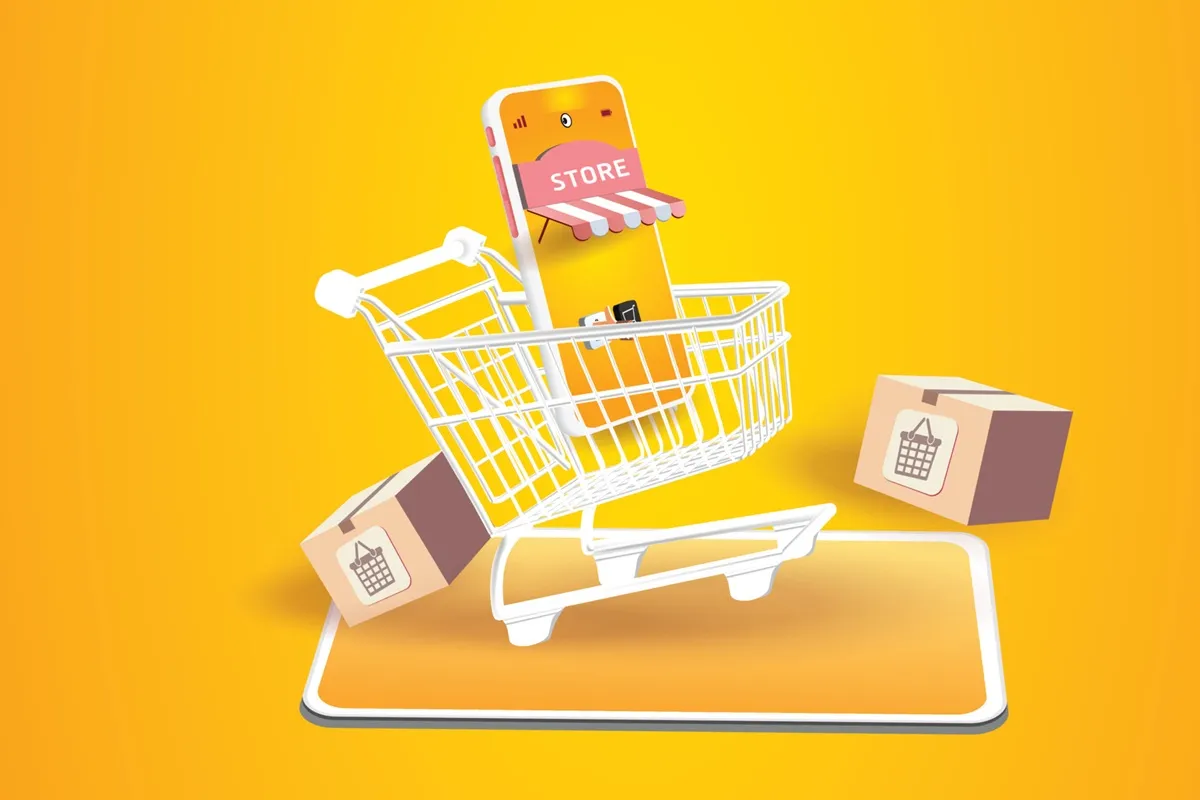E-commerce has come a long way from its early days of simple product listings and shopping carts. Today, the landscape is driven by data, personalization, and technology that helps businesses operate efficiently while offering unique experiences to customers.
To succeed in this fast-paced environment, retailers need to look beyond basic tools and explore advanced e-commerce technologies.
This blog will guide you through various advanced e-commerce technologies, such as predictive analytics, enhanced security measures, advanced personalization techniques, and emerging trends like augmented reality (AR), voice commerce, and blockchain.
By integrating these technologies, online retailers can stay ahead of the competition, provide superior customer experiences, and optimize their operations.
Advanced E-commerce Analytics
Traditional analytics tools like Google Analytics are essential, but advanced e-commerce analytics goes far beyond tracking website traffic and conversions.
In this section, we explore how e-commerce businesses can leverage more sophisticated analytics techniques to gain deeper insights into customer behavior, predict future trends, and optimize marketing strategies.
Beyond Google Analytics
Google Analytics is a fundamental tool for understanding website performance, but it’s limited in its scope when it comes to deeper insights.
Advanced tools like Mixpanel, Heap Analytics, and Amplitude offer event-based tracking, cohort analysis, and real-time data visualization, which can help businesses analyze user actions and trends at a more granular level.
Predictive Analytics
Predictive analytics involves using historical data, machine learning, and AI algorithms to predict future events. In e-commerce, it can forecast customer demand, identify at-risk customers, and optimize inventory management.
Tools like IBM SPSS, SAS Analytics, and Google Cloud AI can be integrated with e-commerce platforms to implement predictive analytics.
A/B Testing and Multivariate Testing
A/B testing compares two versions of a webpage or feature to see which performs better. Multivariate testing, on the other hand, tests multiple variables simultaneously.
The Cost of Slow Websites: How Speed Impacts Your Business
Platforms like Optimizely, VWO, and Google Optimize allow e-commerce businesses to optimize their websites by continuously testing different elements, such as headlines, images, and call-to-action buttons.
E-commerce Security and Fraud Prevention
As e-commerce continues to grow, so does the risk of cyber threats and fraud. Implementing advanced security measures is crucial to protect both the business and its customers.
This section covers cutting-edge security technologies beyond basic compliance measures.
Beyond PCI Compliance
PCI DSS (Payment Card Industry Data Security Standard) compliance is mandatory for any business that handles credit card transactions.
However, compliance alone doesn’t fully protect against cyber threats. Implementing advanced security measures like tokenization, encryption, and multi-factor authentication (MFA) can enhance security beyond the basic requirements.
Fraud Detection and Prevention
Fraud is a significant concern for online retailers.
Modern fraud detection tools like Signifyd, Riskified, and Kount use machine learning and behavioral analysis to detect suspicious transactions and prevent chargebacks. These tools analyze patterns in real-time to identify and block fraudulent activities.
Data Privacy and Compliance
Data privacy regulations, such as GDPR (General Data Protection Regulation) and CCPA (California Consumer Privacy Act), require businesses to handle personal data responsibly.
Tools like OneTrust and TrustArc help companies ensure compliance by managing user consent, cookie tracking, and data requests.
E-commerce Personalization and Customer Experience
Personalization is a powerful way to enhance customer experience and drive sales. Advanced personalization goes beyond simple product recommendations and uses AI and machine learning to create tailored experiences for every customer.
Beyond Basic Recommendations
Instead of showing generic recommendations, advanced personalization tools like Dynamic Yield, Monetate, and Nosto use machine learning to analyze customer behavior and create personalized experiences, such as individualized product recommendations, customized landing pages, and tailored promotions.
Personalized Marketing Campaigns
Personalized marketing campaigns use data to send targeted messages to customers based on their preferences and behaviors.
Platforms like HubSpot, Klaviyo, and ActiveCampaign enable businesses to automate email campaigns, SMS messages, and social media ads that are tailored to individual customer segments.
Omnichannel Customer Experience
An omnichannel strategy ensures a seamless customer experience across all channels—online, mobile, in-store, and social media.
Tools like Zendesk, Salesforce Commerce Cloud, and Shopify Plus help integrate multiple sales and support channels to provide a consistent experience regardless of where the customer interacts with the brand.
Emerging E-commerce Technologies
E-commerce is evolving rapidly, and emerging technologies like augmented reality, voice commerce, and blockchain are shaping the future of online retail.
This section explores these trends and how they can be applied to create innovative shopping experiences.
Augmented and Virtual Reality (AR/VR)
AR and VR technologies allow customers to interact with products in a virtual environment.
Retailers like IKEA and Sephora use AR apps to let customers visualize furniture in their homes or try on makeup virtually. This immersive experience can increase customer engagement and reduce return rates.
Voice Commerce
Voice commerce enables customers to search for products, make purchases, and get personalized recommendations using voice commands through devices like Amazon Echo or Google Home.
As voice technology becomes more integrated into smart home devices, e-commerce businesses need to optimize their product listings for voice search.
Blockchain Technology
Blockchain technology is known for its security and transparency. It can be used in e-commerce for supply chain management, ensuring product authenticity, and secure payments.
Companies like VeChain use blockchain to track products from production to delivery, providing customers with proof of origin.
Conclusion
Advanced e-commerce technologies are transforming the way businesses operate and engage with customers.
By adopting tools like predictive analytics, advanced security measures, personalized marketing campaigns, and emerging technologies like AR and blockchain, e-commerce businesses can create unique and optimized experiences that drive growth and customer satisfaction.



